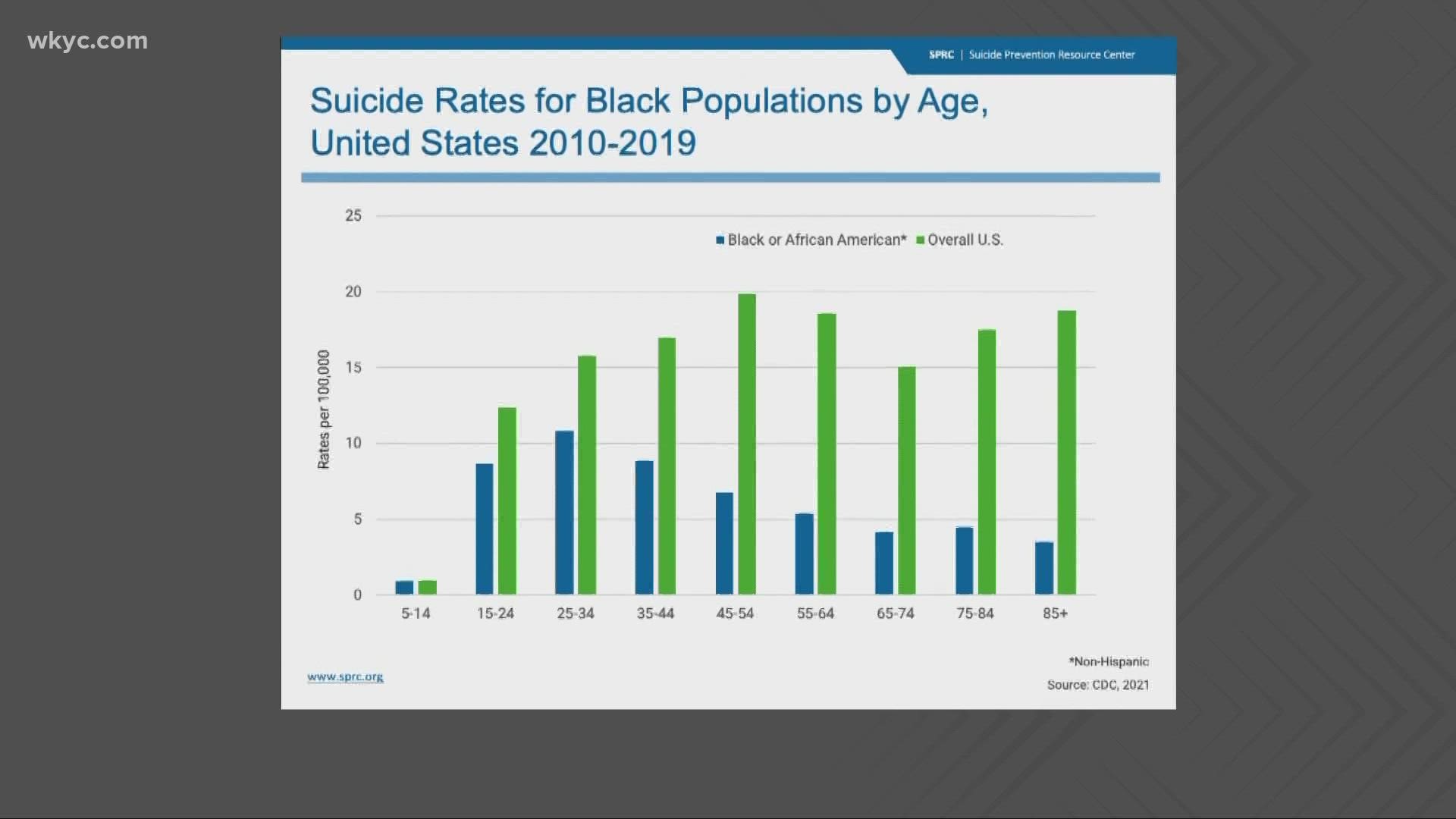CLEVELAND — When you lose a child to child to suicide, it comes with a feeling of guilt, and unbearable pain. That’s how Steve and Angelic Young described losing their son Steve Tate.
"As far as doing anything different, honestly, I don’t know," Steve Young said. "For a while. I felt guilty. Like what more could I've done? And then I talked to my pastor and, and you know, he told me, I raised them as best as I could."
Steve’s first public battles with depression began in his early 20’s. His family sought mental help for him after an unsuccessful suicide attempt. They thought things had improved. But 5 years later, with no warning signs, Steve took his life in 2017.
"It was a whirlwind of things that got to him emotionally and you know, took him down the back to the depressed… depression stage," Angelic recalled.
He was just 27 years old when he died. Just one year older than Ian Alexander King Jr. – son of actress Regina King – who recently took his own life. And a few years younger than Miss USA 2019 Cheslie Kryst who took her own life last month at age 30.
All three, in the age range where African Americans are most likely to commit suicide.
According to the Suicide Prevention Center, suicide rates of Blacks are highest amongst 25 to 34 year olds before declining – peaking much earlier in life than other populations.
Some of those risk factors that put anyone at risk for suicide are higher in the black community.
Dr. Marsheena Murray is a clinical psychologist at MetroHealth.
"There is a link between trauma or PTSD and suicide," she said. "And when we think about how black people experience trauma in this country in their neighborhoods, in their communities, it's at a much higher rate."
Add to it, economic and social determinants.
"Access to Black people having resources, transportation, insurance; all those things get in the way, whenever people are trying to access mental health services," Murray said.
When it’s all said and done, only 1 in 3 Blacks receive the mental help they need. And Dr. Murray says those that do still face barriers including increased odds of misdiagnosis, and the inability to relate to their therapists – only 4% of clinical psychologists are black.
"When we're thinking about mental health. And we think about the things that you would, that Black people would bring to therapy, the racial discrimination and wanting to feel understood -- they really need providers that look like them.
Regardless of the circumstances, the young’s and experts agree. If you think a family needs help, and more importantly if they’re saying they have a problem, don’t downplay it. Listen, and get professional help!
"Don't feed into the stereotypes of you're strong. You can handle it, you got this," Angelic said. [Don't think,] you're not supposed to cry. You're not supposed to have feelings."
"Needing help has been viewed as weakness," Murray said. "And, you know, we really need to dispel those myths and get rid of that, that negative energy, ‘cause it's stopping us from moving forward and being our best selves and addressing any mental health things that we might have."
If you or someone you know is struggling with thoughts of suicide, help is out there:
- National Suicide Prevention Lifeline: 1-800-273-8255
- Ohio Life Saver: Need help now? Text "4HOPE" to 741741 or call 1-800-273-TALK (8255)
- ADAMHS Board of Cuyahoga County:
- Cuyahoga County 24-Hour Suicide Prevention, Mental Health/Addiction Crisis, Information and Referral Hotline at (216) 623-6888
More A Turning Point coverage:

